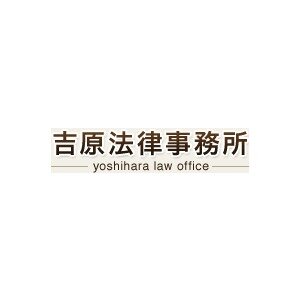Best Disability Insurance Lawyers in Japan
Share your needs with us, get contacted by law firms.
Free. Takes 2 min.
Or refine your search by selecting a city:
List of the best lawyers in Japan
About Disability Insurance Law in Japan
Disability Insurance in Japan is designed to provide financial support to individuals who are unable to work due to a long-term illness or injury. The country has a comprehensive insurance system, which includes public and private options to help support disabled individuals. The National Pension System (NPS) and Employees' Pension Insurance (EPI) are the primary social insurance programs providing disability benefits. Additionally, private insurance providers offer supplementary plans to enhance coverage. Understanding the complexities of Disability Insurance can be challenging due to the integration of public policies and private options.
Why You May Need a Lawyer
Seeking legal advice in the area of Disability Insurance may be necessary in several situations, including:
- Denial of Disability Benefits: If your claim is denied, a lawyer can help you file an appeal and navigate the complex appeals process.
- Understanding Your Rights: A lawyer can explain your rights under Japan's disability insurance laws and ensure you're receiving the benefits you're entitled to.
- Complex or Conflicting Policies: Private and public insurance may have different or overlapping provisions that are confusing to navigate without professional help.
- Negotiating with Insurers: Attorneys can assist in communication and negotiation with insurance companies to secure favorable outcomes.
- Legal Representation: If disputes escalate to legal proceedings, a lawyer can provide representation in court.
Local Laws Overview
Key aspects of Disability Insurance laws in Japan include:
- National Disability Benefit Framework: The NPS and EPI primarily provide basic coverage but differ in eligibility requirements and benefit amounts.
- Eligibility: Generally, individuals must have a certain period of contribution to qualify for disability benefits under public programs.
- Types of Benefits: This includes basic disability pensions and occupational disability pensions, with differing requirements and benefits based on severity and type of disability.
- Application and Appeal Process: Regulated by Japanese social insurance agencies, processes can be intricate and typically require substantial documentation and evidence.
- Private Insurance Regulations: Governed by the Financial Services Agency of Japan, ensuring consumer protection and product transparency.
Frequently Asked Questions
What is Disability Insurance?
Disability Insurance provides financial support to individuals who cannot work due to illness or injury. It assists with replacing a portion of income and is available through public and private systems in Japan.
Who is eligible for Disability Insurance in Japan?
Eligibility depends on the type of insurance. For public programs like NPS and EPI, eligibility is based on previous contribution periods and the severity of the disability.
How are Disability Insurance benefits calculated?
Benefits are calculated based on the average income and contributions made during the eligible period, along with the degree of disability.
How do I apply for Disability Insurance benefits?
Applications can be submitted to local municipal offices or through employers, accompanied by relevant medical and employment documentation.
Can I appeal a denied Disability Insurance claim?
Yes, you can appeal a denied claim. It's often advisable to consult with a lawyer to understand the process and improve the chances of approval.
What are the common reasons for claim denial?
Claims may be denied due to insufficient medical evidence, lack of contributions, or discrepancies in documentation.
How long does it take to receive Disability Insurance benefits?
Processing times vary but generally take several months from the time of application given the need for thorough evaluation.
Is private Disability Insurance recommended?
Many individuals opt for private insurance to supplement public benefits, providing additional financial security and coverage flexibility.
How do I know if I'm receiving the correct amount of benefits?
Benefits calculation involves your average earnings and contribution history. Speaking with a lawyer or a representative from the insurance program can clarify any discrepancies.
Where can I get more information about Disability Insurance in Japan?
Information can be obtained from local municipal offices, the Japanese Pension Service, or private insurers.
Additional Resources
For further assistance, consider the following resources:
- Japanese Pension Service: Offers detailed guides on public pension and disability benefits.
- Social Insurance Offices: Local offices can provide specific guidance and application support.
- Legal Aid Organizations: Offer free or low-cost legal services to those qualifying for assistance.
- Consumer Affairs Agency: Provides information on consumer rights related to insurance products.
Next Steps
If you require legal assistance in Disability Insurance, consider taking the following steps:
- Document Your Case: Gather all relevant medical and employment records to support your situation.
- Consult a Lawyer: Look for professionals specializing in disability and insurance law in Japan.
- Contact Legal Aid: Reach out to legal aid organizations for support and guidance tailored to your case.
- Prepare for Meetings: Write down questions, and concerns, and have a clear objective for your legal consultations.
Lawzana helps you find the best lawyers and law firms in Japan through a curated and pre-screened list of qualified legal professionals. Our platform offers rankings and detailed profiles of attorneys and law firms, allowing you to compare based on practice areas, including Disability Insurance, experience, and client feedback.
Each profile includes a description of the firm's areas of practice, client reviews, team members and partners, year of establishment, spoken languages, office locations, contact information, social media presence, and any published articles or resources. Most firms on our platform speak English and are experienced in both local and international legal matters.
Get a quote from top-rated law firms in Japan — quickly, securely, and without unnecessary hassle.
Disclaimer:
The information provided on this page is for general informational purposes only and does not constitute legal advice. While we strive to ensure the accuracy and relevance of the content, legal information may change over time, and interpretations of the law can vary. You should always consult with a qualified legal professional for advice specific to your situation.
We disclaim all liability for actions taken or not taken based on the content of this page. If you believe any information is incorrect or outdated, please contact us, and we will review and update it where appropriate.
Browse disability insurance law firms by city in Japan
Refine your search by selecting a city.












